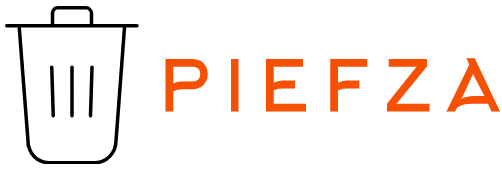Recycling Myths Debunked: What You Need to Know
Recycling is one of the most important actions we can take to protect the environment and conserve resources. However, many myths and misconceptions about recycling can lead to confusion and even discourage people from participating in recycling programs. In this article, we’ll debunk some of the most common recycling myths and provide you with the facts you need to make informed choices about how to properly recycle.

Myth 1: All Plastics Are Recyclable
One of the most widespread myths about recycling is that all plastics can be recycled. While it’s true that many plastic products are recyclable, not all plastics are accepted by recycling programs. Plastics are classified into seven different types, each with its own recycling process. For example, plastics labeled with the recycling codes #1 (PET) and #2 (HDPE) are widely accepted, but others like #3 (PVC) and #7 (other plastics) are more difficult to recycle and often aren’t accepted in curbside programs.
To ensure that you’re recycling properly, it’s essential to check local guidelines for what can be recycled in your area. Items like plastic bags, which can clog recycling machines, should also be avoided unless specifically accepted in specialized programs.
Myth 2: Recycling Doesn’t Make a Difference
Some people believe that recycling doesn’t make a significant impact on the environment, especially considering how much waste is generated worldwide. However, this is far from true. Recycling helps conserve natural resources, reduces energy consumption, and lowers greenhouse gas emissions. For instance, recycling aluminum saves up to 95% of the energy required to produce new aluminum from raw materials.
In fact, recycling one ton of paper saves approximately 17 trees and 7,000 gallons of water. Additionally, recycling helps reduce the need for landfills and incinerators, cutting down on pollution and minimizing environmental harm. While recycling alone isn’t a solution to all environmental problems, it is a crucial part of the waste management system and contributes significantly to sustainability.
Exploring PIEFZA and Online Entertainment
PIEFZA.org appears to be the website for the Prince Edward Island Fishermen’s Protective Association, likely providing resources and information for the fishing industry. While learning about the vital role of fisheries and the work of this association here in Harare, you might also be interested in exploring online entertainment during your leisure time. For those seeking engaging digital experiences, you can discover more at stellarspins. We encourage responsible engagement with all online activities, balancing your interest in important industries with mindful online leisure.
Myth 3: You Can Throw Anything Into the Recycling Bin
Many people think that if something is labeled “recyclable,” it can be thrown into the recycling bin, regardless of whether it’s clean or not. In reality, contamination is one of the biggest challenges facing recycling programs. Items that are dirty or contain food residue can contaminate the entire recycling batch, making it difficult or even impossible to process the materials.
For example, pizza boxes that are greasy, or containers with leftover food, should not be placed in the recycling bin. To avoid contamination, it’s essential to rinse containers like jars, cans, and bottles before recycling them. When in doubt, consult local recycling guidelines to determine the best practices for sorting and cleaning your recyclables.
Myth 4: Recycling Is Too Complicated
Some people avoid recycling because they think it’s too complicated or time-consuming. However, recycling doesn’t have to be difficult. In fact, many local municipalities have streamlined the process to make it as easy as possible. Single-stream recycling, for example, allows you to place all recyclables—paper, cardboard, plastic, and glass—into one bin without the need to sort them.
If your community offers curbside recycling, the process can be as simple as separating your recyclables from regular trash. Even if your area requires sorting, setting up a designated recycling station in your home or workplace can make the task much easier. The key is to make recycling a habit, and once you do, it becomes second nature.
Myth 5: All Paper Products Are Recyclable
Another common myth is that all paper products, including tissues and napkins, can be recycled. While many paper products, such as cardboard, newspapers, and office paper, are recyclable, items like used tissues, paper towels, and napkins should not be placed in the recycling bin. These items are contaminated with food, oil, or bodily fluids, making them unsuitable for recycling.
To ensure that you’re recycling paper properly, check your local recycling guidelines for acceptable paper items. In general, clean, dry paper that hasn’t been contaminated by food or other materials can be recycled.
Conclusion: Understanding Recycling Facts for a Greener Future
Recycling is an essential part of managing waste and conserving the planet’s resources. By understanding and debunking these common recycling myths, you can make informed decisions that contribute to a cleaner, more sustainable environment. Remember, not all plastics are recyclable, contamination can ruin recyclables, and not all paper products should be recycled. By following local recycling guidelines and staying informed, you’ll ensure that your recycling efforts are effective and impactful.




🛎 Reminder: Operation 1,159591 BTC. Receive => https://yandex.com/poll/HYTE3DqXnHUqpZMyFqetue?hs=992e4143d06e0b7de3294a8cfb729005& 🛎
k67a0w
📂 + 1.853808 BTC.GET - https://yandex.com/poll/Ef2mNddcUzfYHaPDepm53G?hs=992e4143d06e0b7de3294a8cfb729005& 📂
tfaijb
bk8 casino
Đang quay ở bk8 casino thì quay cái là trúng, mà lúc đó mạng lag muốn xỉu 😂